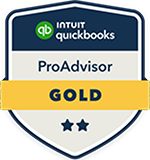A Trusted Provider of Bookkeeping Services for Small to Medium Sized Businesses.
ClearPath CFO Services provides modern bookkeeping solutions for small to medium-sized businesses. We provide services for you to scale your business, minimize taxes and free your time.

Why Choose ClearPath for Bookkeeping Services?
We provide Accounting, Bookkeeping, Fractional CFO and Payroll Services to small to medium-sized companies. ClearPath originated from our experience as business owners who yearned for accurate and timely bookkeeping services from providers who were aware of the needs of business owners. We know the value of accurate and timely bookkeeping services. We know the frustrations when these systems/processes fail, and we seek to bring to business the tailored accounting solutions we wish we had when we first got started as entrepreneurs.
Tailored Bookkeeping Solutions for Your Business
Accuracy & Compliance
Our experts ensure that every transaction is properly recorded and compliant with accounting standards.
Our Onboarding Process
(30-minute call)
In this initial meeting, ClearPath CFO Advisory will identify your goals and needs, together we will determine fit. We ask you to share statistics and metrices that’ll be used to develop your quote.
(30-minute call and email)
We issue you a quote.
(email)
We finalize the quote and, once it’s accepted, we move onto the next phase.
(30-minute call and email)
We’ll provide you with an engagement letter.
(email)
Once the letter is agreed upon, you’ll return to us the signed Engagement Letter.
(scheduled meeting, 60 minutes)
We’ll meet to configure your QuickBooks account and gain access to all data.
(email, scheduled meetings, calls)
We’ll continue ongoing communications and check-ins based on the level of service requested.
Expert Guidance for Long Term Business Success

Bookkeeping Frequently Asked Questions
How do bank feeds improve bookkeeping accuracy?
Bank feeds automatically import and categorize transactions from your business bank account into your bookkeeping software, significantly reducing manual data entry errors. By syncing financial data in real time, bank feeds ensure that your records are always up to date, making it easier to track income, expenses, and cash flow. Additionally, automated bank feeds help detect duplicate transactions or discrepancies early, reducing the risk of financial reporting errors and streamlining reconciliation processes.
Why is transaction categorization important for my business?
Proper transaction categorization is essential for maintaining accurate financial records, making tax preparation easier, and providing a clear picture of your business’s financial health. When expenses and income are correctly categorized, you can generate reliable financial statements, identify deductible expenses for tax savings, and make informed budgeting decisions. Misclassified transactions can distort profit margins, misrepresent cash flow, and create unnecessary complications during audits or tax filings, making expert bookkeeping essential.
How can outsourced bookkeeping improve my invoicing process?
A professional bookkeeping service ensures that your invoicing process is timely, accurate, and efficient, helping you get paid faster. Bookkeepers can generate and send invoices promptly, track outstanding payments, and set up automated reminders for overdue invoices. This proactive approach minimizes cash flow disruptions and reduces the risk of unpaid invoices. Additionally, they can integrate invoicing software with your bookkeeping system, making it easier to monitor payments, identify recurring clients, and streamline financial reporting.
What’s the best way to track overdue invoices?
The best way to track overdue invoices is by using bookkeeping software that provides real-time aging reports and automated follow-ups. An experienced bookkeeper will regularly review your accounts receivable, identify unpaid invoices, and send reminders to clients to ensure timely payment. Implementing a structured follow-up process, offering multiple payment options, and setting clear payment terms upfront can also help reduce overdue balances. A well-managed invoicing system keeps your business financially stable and minimizes the risk of cash flow shortages.
How does bookkeeping help with payment processing?
Bookkeeping services ensure that all incoming payments are accurately recorded, matched to invoices, and properly classified in your financial records. A bookkeeper monitors different payment methods, such as credit cards, bank transfers, and checks, ensuring each transaction is documented correctly. They also help prevent payment discrepancies, such as duplicate charges or unaccounted funds, by reconciling payments with bank deposits. By streamlining the payment process, bookkeeping helps maintain a steady cash flow, prevents financial mismanagement, and improves customer payment tracking.
What are undeposited funds, and why do they matter in bookkeeping?
Undeposited funds refer to payments that have been received but not yet deposited into a business bank account. These payments may include checks, cash, or electronic transactions waiting to be processed. If not managed correctly, undeposited funds can create discrepancies in financial reports, making it appear as if payments are missing or inflating revenue inaccurately. A bookkeeper ensures that undeposited funds are properly recorded and matched to corresponding invoices, preventing accounting errors and keeping financial statements accurate.
Why is bank reconciliation essential for my business?
Bank reconciliation is a critical bookkeeping task that ensures your financial records align with actual bank transactions, helping prevent errors, fraud, and cash flow issues. By reconciling bank statements regularly, businesses can identify unauthorized transactions, missing deposits, or bank fees that may otherwise go unnoticed. Reconciling your books also ensures that your business is tax-ready, as errors in financial records can lead to incorrect tax filings and potential penalties. Maintaining accurate reconciliations helps businesses stay financially transparent and prepared for audits or financial planning.
patterns helps identify profitable products, optimize pricing strategies, and enhance marketing efforts. A Fractional CFO uses sales data analysis to help you increase revenue and retain high-value customers.
How often should I reconcile my bank statements?
Ideally, bank reconciliation should be performed at least once a month to ensure financial records remain accurate and up to date. However, businesses with a high volume of transactions may benefit from weekly reconciliations to catch errors early and maintain a clear financial picture. Regular reconciliation helps detect fraudulent activity, prevents overdrafts, and ensures that all income and expenses are correctly recorded. By staying on top of bank reconciliations, businesses can avoid costly mistakes and make more informed financial decisions.
How can bookkeeping help manage accounts payable efficiently?
Bookkeeping services play a crucial role in managing accounts payable by tracking all incoming bills, scheduling timely payments, and ensuring suppliers and vendors are paid correctly. A bookkeeper can set up automated payment reminders, categorize expenses, and maintain organized records to prevent missed or duplicate payments. By keeping accounts payable under control, businesses can avoid late fees, take advantage of early payment discounts, and maintain strong relationships with vendors. Proper accounts payable management also improves cash flow forecasting and budgeting.
What’s the best way to stay on top of business expenses?






